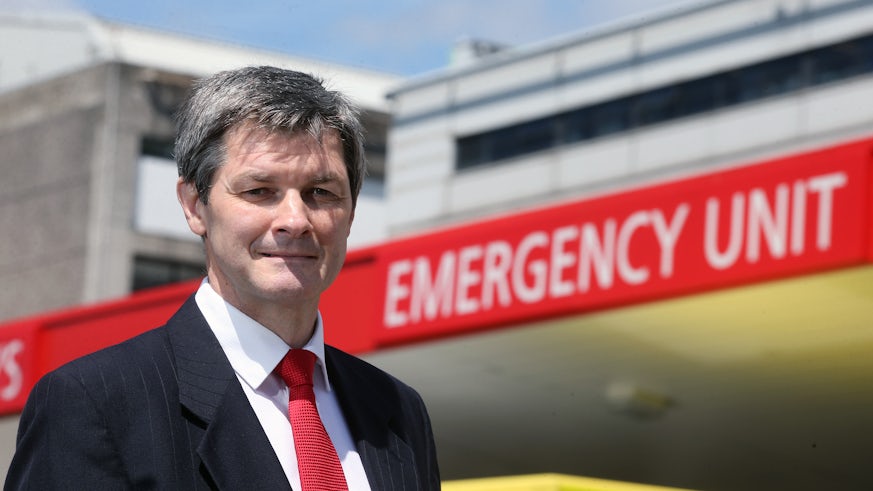Cracking the code of sustainable healthcare
9 March 2016

Professor Tim Rainer explains how lessons from WW2 can help Wales deliver emergency healthcare for the 21st century.
We‘ve all seen the headlines. Slow ambulance response times, heart-wrenching patient stories, and accusations of the NHS being driven to breaking point. We saw it in the run up to last year’s General Election, and we will no doubt see it again as Wales approaches elections to the Assembly this May.
But Wales is not alone in facing challenges in acute healthcare. Throughout the UK, and elsewhere, the pressures of an ageing population and the economic backdrop of austerity place an increasing strain on already stretched resources. Market policies have introduced a culture where profit is often more important than patients, and service needs are beginning to override equally important education and research.
Science has brought us life-changing advances in medical care, with our A&E departments offering rapid access to high quality care, investigations and treatment. But with every step forward comes an increasing expectation that our health service can - and must - adapt and respond to the healthcare challenges of the modern world.
So what is the answer? An unsolvable, downward spiral of quality healthcare is not inevitable; not all countries have buckled in the face of this challenge. Wales must learn from successful practices elsewhere, whilst isolating and overcoming those parts of our own system which are at the root of the problem.
Perhaps the most promising lessons, however, can be found in the history books. The UK is renowned for invention and innovation, but it is also renowned for not implementing these inventions into real life practice. It was British mathematicians in the Second World War who, in their efforts to crack Germany’s Enigma code, developed the first computers and laid the foundations of the internet. If Britain could crack the Enigma’s codes and save countless lives by shortening the course of the war, then it should be able to do the same for healthcare.
The code-breakers at Bletchley Park faced a virtually unsolvable puzzle, but were able to overcome it thanks to a combination of intelligence, purpose and priority. The recruitment of the greatest minds saw the brightest and best put together to crack the Nazi codes. And just as Bletchley’s code-breakers were recruited from our universities and via the Daily Telegraph crossword, we should not be afraid to look beyond the NHS to bring in the diversity of talent and lateral thinking we need.
But that’s not all. The code-breakers at Bletchley Park were united in a common mission of supporting the war effort. Saving the lives of men, women and children throughout Wales in this century requires no less a sense of purpose. Overcoming personal gain and vested interest is essential in driving up standards and providing the strong and focused leadership we need to deliver a first-class system of care.
We also can’t ignore funding. Winston Churchill called Bletchley Park his “goose that laid the golden egg.” No expense was spared on the top-secret facility which provided the Allies with the necessary intelligence to win the war. At a time of increasingly tight public spending, we should remember the crucial role that emergency healthcare plays at the front line of the NHS. Appropriate funding is essential in ensuring that A&E services can play their part in making the whole NHS in Wales fit for the 21st century. Much of today’s NHS problems can be solved by properly implemented IT systems. Seventy years after Alan Turing and his colleagues developed the first prototypes, computers can hold the key to many of the issues facing practitioners across the NHS.
Sustainable healthcare needn’t be an enigma. If we are united in our purpose, ambitious in our approach and committed with our resources, then our healthcare system can rise to the challenges of the modern world and, like the code-breakers at Bletchley Park, continue to save the lives of countless men and women across Wales.
Tim Rainer is Professor of Emergency Medicine at Cardiff University. His remarks were first published in the Western Mail on Monday 7 March 2016.